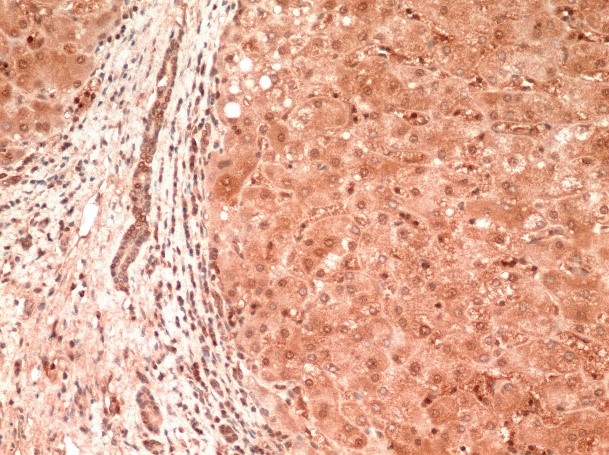
Purinergic signaling in hepatocellular carcinoma
Our group works on the relevance of extracellular purine nucleotides/nucleosides and purinergic signalling pathways in acute and chronic liver diseases, including liver cancer. Recent studies have shown that HCC cells, like cirrhotic liver tissue, express adenosinergic P1 receptors and several membrane-bound ectoenzymes involved in extracellular adenosine metabolism. Additional indirect effects of adenosine in the chronically inflamed liver and tumour microenvironment are likely, such as modulation of effector functions of tumour-infiltrating lymphocytes. There is increasing evidence for the efficacy of combining immunotherapy with targeting the CD39-CD73-A2AR axis. Targeting different molecules involved in adenosine generation may indeed enhance anti-tumour immunity and block a potential mechanism of acquired resistance to immunotherapy. Our current efforts are to better understand the impact of adenosinergic signalling on the complex tumour-immune cell interactions in HCC.
Team
Dr. rer. nat. Katrin Splith
PD Dr. med. Linda Feldbrügge
Dr. med. Marika Ebner
Anna Riddermann